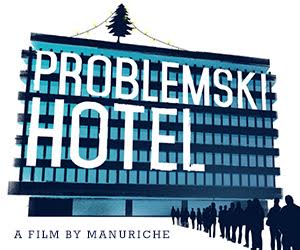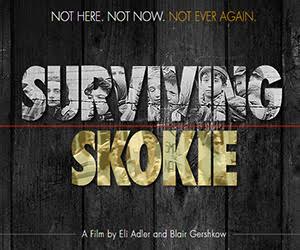
Watch the video interview on Youtube here
Film Courage: Lee I think you said that feature writers should have a new, ready-to-market feature script every six months or so. And that TV writers should have a new original pilot one every three or four months.
Lee Jessup: In a perfect world. Yes…
Film Courage: Is that a lot of pressure though?

Watch the video interview on Youtube here
Lee Jessup: That’s a lot of pressure. I find that most features go six to twelve months. You know the truth of the matter is if you take 14 months and you come up with a great sample, I’m not going to hold it against you. The important thing for me is that you keep writing and keep finishing work. For pilots in a perfect world, I would like to see two generated in a year. Sometimes it happens that it’s only one. Sometimes it happens that it’s three. It really depends on the writer. So there isn’t really one set course that you’re supposed to follow. But it’s really about doing the work and getting the work out there. Sometimes you’ll work on a script and you’ll say “I’ve worked on this for eight months. I’ve tackled this every which way, it’s not happening.” It’s also knowing when to let something go, not for all eternity but for potentially you can come back to it later when you’ve had a stroke of genius that informs you how to take the work, how to make it better.
“…Because of that you really want to expose the work early and often. So that means from concept, you want to run the concept by people in the know, whether it be members of your writers group or in a class or whatever it is. Have people look at your outline. Really don’t be afraid to expose the work to get feedback to have questions asked.”

Watch the video interview here on Youtube
But the point with having those broad goals is just do the work and get it out there rather than spend years and years and years tinkering with one screenplay that then you run the risk that after three years (and I just went through this with a writer), tinkering with the script for three years and then going “Oh, it’s not good enough.” It will never be good enough. I’m not going to get it out there. And then starting another script and spending another two years on something and then going “Oh but it’s still not good enough. I’m not going to get this out there.” That is the challenge that we run into. So because of that you really want to expose the work early and often. So that means from concept, you want to run the concept by people in the know, whether it be members of your writers group or in a class or whatever it is. Have people look at your outline. Really don’t be afraid to expose the work to get feedback to have questions asked.
I was just sitting with a writer of mine who had written a feature script with a guy that is his manager and they had been on the script for a year and a half. And then he gave the script to a few writer friends. And he got some massive notes back. And what he’d said to me was “Oh, if only we’d given it an outline.” It was what we all were pushing him to do but he felt loyal to the manager. He didn’t want to expose it. And I understand that choice that he made. He was sort of in a tough spot to serve [or] to listen and to serve the one master. Do you open yourself up?
I generally prefer to expose work early and often because I just think that it saves you a lot of time in the end.
Watch all of Lee Jessup’s Film Courage video interviews on Youtube here
Getting it Write: An Insider’s Guide to a Screenwriting Career by Lee Zahavi Jessup
CONNECT WITH LEE JESSUP
Leejessup.com Facebook.com/leezahavijessup Twitter.com/leezjessup
Advertisement

Visit LeftOnPurpose.com here to watch the film and read more on Mayer Vishner
LEFT ON PURPOSE – Midway through the filming of a documentary about his life as an anti war activist, Mayer Vishner declares that his time has passed and that his last political act will be to commit suicide— and he wants it all on camera. Now the director must decide whether to turn off his camera or use it to keep his friend alive. Left on Purpose is an award winning feature length documentary that confronts the growing issues of aging, isolation and end of life choices through an intense character driven story of the relationship between filmmaker and subject. With humor and heart it provides a rare cinematic look at what it means to be a friend to someone in pain.

Watch The Special Need on Vimeo here
THE SPECIAL NEED: Enea is 29. He has blue eyes, likes trucks, and loves girls. He hasn’t found the right one yet. Still he has never stopped looking for her. One more thing about Enea: he is autistic. One day, after taking a photo of a girl on the bus, he is pushed to the ground by her boyfriend. Enea’s therapist convinces his mom that the time has come for the man to cope with his sexual desires. Enea’s friends Carlo and Alex get involved and try to find a way for Enea to have sex in a safe and legal environment.

Watch Problemski Hotel on Vimeo here
PROBLEMSKI HOTEL: For the inmates of the multinational residential center somewhere in Europe, the circular, black comedy that is the cross-frontier migrant’s life ‘within the system’ becomes even blacker in December. For we are in the European ‘season of gladness and joy.’ Bipul doesn’t want to admit it to himself, but the Russian girl’s arrival makes a difference: Lidia. Hope? Surely not! A future? Get real! December is also the ninth month of Martina’s pregnancy. Pregnancies don’t go round in circles; they end in eruptions. Because when the situation is hopeless, rescue is near.

Watch Surviving Skokie on Vimeo here
SURVIVING SKOKIE: They survived the horrors of the Holocaust and came to America to put the past behind. For decades they kept their awful memories secret, even from their children. But their silence ended when a band of neo-Nazi thugs threatened to march in their quiet village of Skokie, Illinois “because that is where the Jews are.”
Surviving Skokie is an intensely personal documentary by former Skokie resident Eli Adler about the provocative events of the 1970s, their aftermath, his family’s horrific experience of the Shoah, and a journey with his father to confront long-suppressed memories.


























